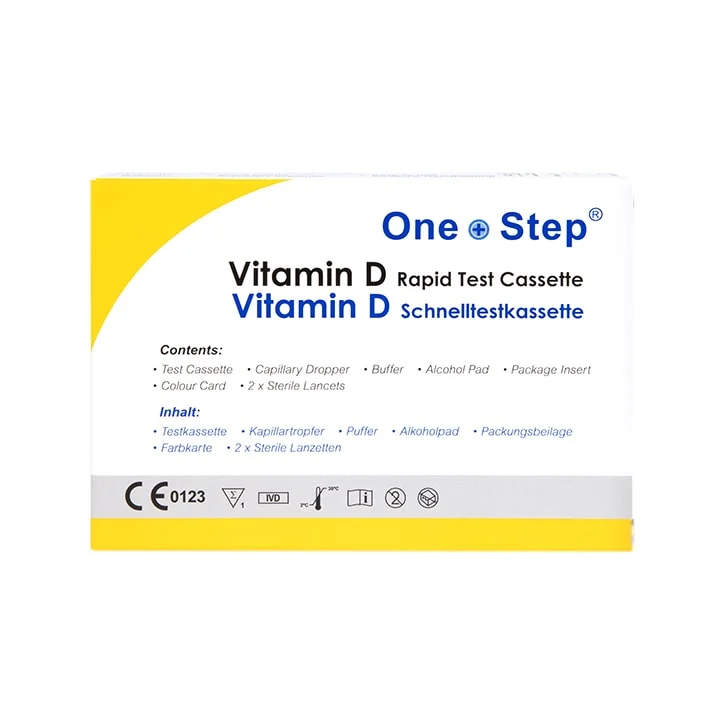Description
What is Vitamin D Deficiency?
Vitamin D is essential for healthy bones. Some people don’t have enough vitamin D – called vitamin D deficiency.
Why do I need this test?
Between October and March, the sunlight in Britain is not strong enough to make enough vitamin D, and up to a quarter of the population has low levels of it in their blood.
Vitamin D deficiency can put people at risk of Rickets or Osteomalacia and some research suggests that not getting enough of it may also be linked to Heart conditions, Diabetes, Asthma and Cognitive impairment in older adults.
Vitamin D deficiency at-risk groups:
The Chief Medical Officers of the UK say these groups are at particular risk of vitamin D deficiency:
- Pregnant and breastfeeding women, especially teenagers and young women.
- Infants and children under 5 years of age.
- People 65 and over.
- People who have little or no exposure to the sun. This includes covering-up for cultural reasons, people who are housebound or who stay indoors for long periods of time.
Limitations
- The Vitamin D Rapid Test Cassette provides only a semi-quantitative analytical result. A secondary analytical method must be used to obtain a confirmed result.
- It is possible that technical or procedural errors, as well as other interfering substances in the whole blood specimen may cause erroneous results.
- The Cut-off for the test is 30ng/mL with a deviation range of ±4ng/mL.
- As with all diagnostic tests, all results must be considered with other clinical information available to the physician.
- Other clinically available tests are required if questionable results are obtained.
Additional information:
How does the Vitamin D test work?
25-hydroxy Vitamin D is the main storage form of vitamin D in the body. Therefore, the overall status of vitamin D can be determined by detecting the content of 25-hydroxy Vitamin D. 25-hydroxy Vitamin D levels less than 30ng/mL, indicates Vitamin D Deficiency or Insufficiency. Vitamin D supplements can be recommended in these cases.
When should the test be used?
The clinical application of 25-hydroxy Vitamin D is mainly for diagnosis, treatment and monitoring of rickets (children), osteomalacia, postmenopausal osteoporosis and renal osteopathy. Vitamin D deficiency is also associated with many other diseases, including cancer, cardiovascular disease, autoimmune diseases, diabetes and depression. Monitor your vitamin D levels to determine whether to take vitamin D supplements. The Vitamin D Rapid Test can be used any time of the day.
Can the result be incorrect?
The results are accurate as far as the instructions are carefully respected. Nevertheless, the result can be incorrect if the Vitamin D Rapid Test cassette gets wet before performing the test, or if the quantity of blood dispensed in the sample well is not sufficient, or if the number of buffer drops are less than 2 or more than 3. The capillary dropper provided in the box enables you to ensure the collected blood volume is correct. Due to immunological principles involved, there is also the possibility of false results in rare cases. A consultation with a doctor is always recommended for such tests based on immunological principles.
How to interpret the test if the colour and the intensity of the lines are different?
Please refer to the illustration and compare the T line intensity with the “Vitamin D Colour card” provided with the kit.
If I read the result after 20 minutes, will the result be reliable?
No. The result should be read 10 minutes after adding the buffer. The result is unreliable after 20 minutes.
What do I have to do if the result is deficient or insufficient?
If the result is sufficient, it means that the Vitamin D level is higher than or equal to 30ng/mL and is within the normal range.
Can my Vitamin D levels be too high?
A case of Vitamin D toxicity (hypercalcemia) is rare, but cannot be excluded based on the test results. If symptoms persist, it is recommended to consult a physician.

